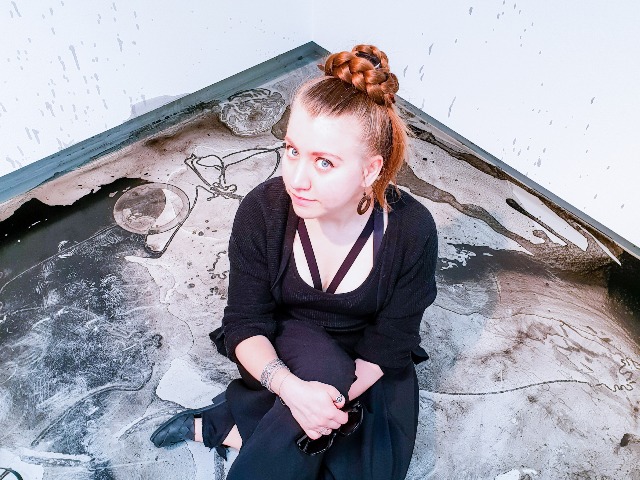The Women of CF: Vass Verkhodanova
| Date: | 19 March 2021 |

I am a PhD researcher at Campus Fryslân. Around four years ago, I wrote my research proposal about speech of people with Parkinson’s disease and how other people perceive it, I applied with it for a PhD position at Campus Fryslân and got accepted. Since then, I immersed myself in the project. In short, we’ve been looking for correlations between the impressions of listeners with actual acoustic features extracted from speech signals of people with Parkinson’s disease: we’ve aimed at translating subjective knowledge into objective measurements. It is a very rewarding research area, I hope our findings could contribute to the universal goal of early detection of the disease and hence - to the improvement of quality of life if people with Parkinson’s.
What do you like most about your work at Campus Fryslân?
I like the atmosphere of future orientation and mindfulness. There is one theory in cognitive linguistics that our lives are significantly influenced by the conceptual metaphors we use to explain complex phenomena. It’s author, George Lakoff, is famous for applying this metaphor theory to many disciplines, where he talks a lot about framing - the way individuals, groups, and societies communicate and conceptually organize their perception of reality. Sometimes, however, there appears a new progressive topic, a new way of thinking, a new idea but there is no simple established frame to which you can appeal with a word or a phrase, so it takes quite some doing to communicate it to people and society in general. It may sound a bit ostentatious, but it feels that Campus Fryslân is not only becoming one of the birthplaces for novel and progressive ideas, but also works on filling such conceptual gaps - lack of frames - by bringing together people and building a society which speaks the language of values, thus perpetuating such ideas.
Who inspires you?
To be honest, I don’t think I am inspired by certain people but rather by certain actions, decisions, work or discoveries of those people. Inspiration is a very specific feeling. And, for example, having feelings for people who have accomplished great deeds but whom I've never seen or met seems slightly odd. But a joy of comprehending and discovering something new through people’s work, or suddenly recognizing that the certain work’s underlying values are similar to yours - it is relative to the joy of exploration that every researcher is addicted to (even when we are not talking about research).
What advice would you give to your student self?
Do not diminish your efforts, devalue your work or unduly criticize yourself - there are plenty of others who do that already, leave it to them.
How do you deal with being a woman in a man's world/industry?
I do not deal with it, I am simply a woman in a world. But if I am to accept the premise, I feel that unfortunately there is still a long way to get to gender equality. And sometimes this way is dangerous. Often, a woman in a leading position is not considered to be a serious opponent - irrespectively of the field - and therefore she acts aggressively first. It is a famous trap of violence, the Hobbesian dilemma, when a preventive violence evokes a response, and then it spirals indefinitely. The way out is cooperation, but in the world we live in now, women leaders have to prove something all the time. Nowadays, there is a gender equality agenda in many large companies, there is even the gender equality global reports and rankings of the companies who adhere to gender equality, which is no doubt a very positive trend. But it feels that no matter how many women there are in business (or science, or politics), there will be no major effect until the monopoly of the ''Old Boys Club'' disappears, as Russian political scientist Ekaterina Shulman said - “the legislation will not change until the legislators change”. But of course it is not the case that a female leader is in any way better than a male leader. The general point is that diversity is better than uniformity: if you have similar people on, let’s say, your board of directors, they will be making similar decisions.

